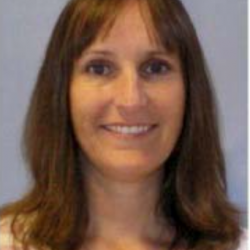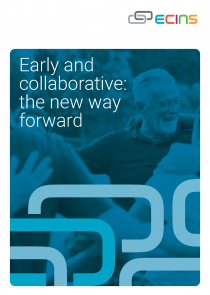ECINS’ Heather Ette spoke to Sally Watson, Communities Officer (Safe), Babergh and Mid Suffolk District Councils
HE: Where do you work, what is your role and how does ECINS fit into the work you do?
SW: I work for Babergh and Mid Suffolk District Councils as a Communities Officer (Safe). I have only been in this role for 5 weeks since the two Councils went through a transformation process. Prior to this I was an ASB Network Officer for Babergh.
I use ECINS on a daily basis primarily for case-management, but also find it extremely useful for recording Youth Nuisance and Night Time Economy perpetrators.
HE: What difference is ECINS making to your job, and how does it assist you in helping your clients?
SW: As a district we are just beginning our Troubled Families programme. ECINS has been fundamentally crucial in bringing agencies together making the whole process smart and effective. This has made a huge difference to my job. Prior to ECINS I was using my own database which was basically just a spread sheet with different sized boxes (that never fitted on a whole page!) which was very ineffective for partnership working. If partners are using ECINS clients can expect to receive a quicker, more thorough service without having to repeat everything to a number of different people.
HE: How many profiles (victims and perpetrators) are you currently dealing with via ECINS and is this growing on a daily/weekly basis?
SW: As people are becoming more confident using ECINS not only are the numbers of cases growing, but the content and value of them is too. We are seeing a lot less repeat victims which prove the problems are being tackled thoroughly at the root.
HE: What’s your general view of the system and has it improved the way you and your team work and deliver your service?
SW: My general view of the system is “How did we manage cases effectively before ECINS?” I find it easy to use and easy to pick up new aspects or improvements that are introduced. It has cut down on the amount of meetings or telephone conversations we use to have and is very useful for shift-workers (i.e. the Police) to catch up with things whatever time of day or night they are working.
HE: You attended our User Group Meeting in July, what did you find most useful about it and would you recommend others attending future User Group Meetings?
SW: I attended my first user-group meeting in July (I wasn’t sure what to expect). I was afraid that everyone there would be ‘super-users’ and I’d be out of my depth talking to them. I couldn’t have been more wrong. Everyone was at different stages of using ECINS, so we were all able to feel confident talking to one another. I picked up some great tips and came away eager to learn about more of the functions I was not currently using. It was also fascinating having Gary chairing the meeting. He was able to answer a number of queries, update us on future functions and improvements, and listen to recommendations made by users at the meeting.
If anyone gets the chance to attend these meetings I would thoroughly recommend them.
HE: Which other agencies are involved in your ECINS partnership and how has it improved your multi-agency working arrangements?
SW: We have a number of agencies involved in our partnership, primarily the Police, Local Authority, Hate Crime Service and local Housing providers. I think we are a little behind some other partnerships in the number of agencies utilising the service so I shall be working on that in the near future. As we operate over a very large area ECINS has definitely improved our working arrangements. Being web-based is a bonus as a number of people work from home and can pick it up there.
HE: Are there any specific features on ECINS that you find particularly useful and are there any features you have learned about through the User Group meetings that you would like to adopt?
SW: I can honestly say I find the whole system very useful (and user-friendly). To me the thing that makes ECINS so great is being able to access immediate help of the ECINS Team when I don’t understand something, or think I’ve done something wrong. Using computer systems isn’t something that comes naturally to me, so having an understanding person talking me through it on the other end of the phone makes all the difference.
At the user group meeting I was interested to hear how other areas use ‘Assessments’ for their troubled families. Gary gave us a run through of what can be done with Troubled Families (family groups, assessments and how they are developing statistical data), so I’m sure we will be using it to its full potential in that field.


